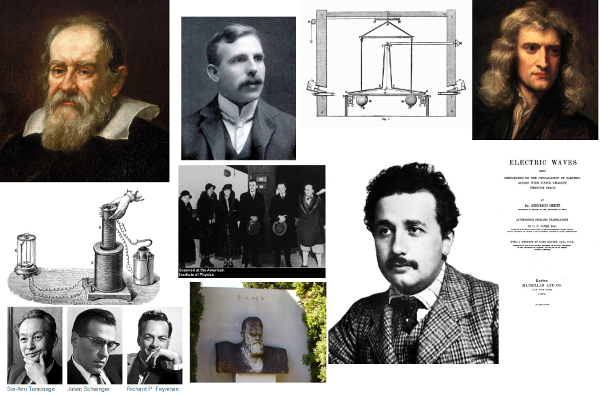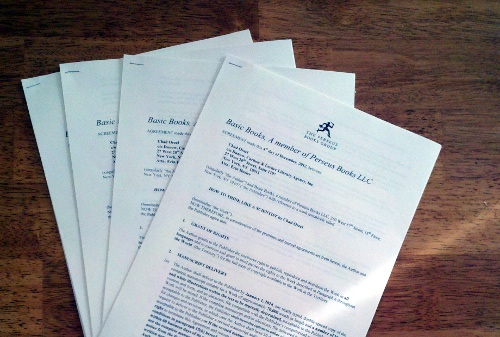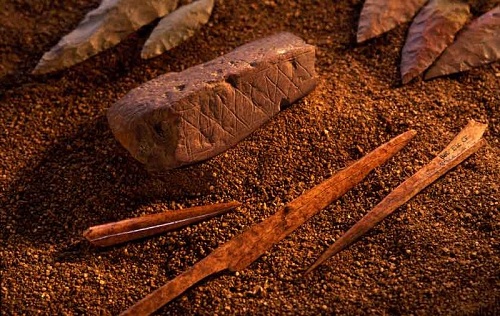As research for the work-in-progress, I recently read Luis Alvarez‘s autobiography, Alvarez: Adventures of a Physicist, which contains a passage that I was reminded of last night while reading another book, that seems like an amusing follow-up to yesterday’s rant about theory and experiment. This is from the end of the chapter where he joined… Continue reading Proving Bethe Wrong: On Theory Inspiring Experiment
Category: History of Science
Top Physics Breakthroughs of the 13th Baktun
We’re at that time of year where people publish lists of top stories of the year, but as many crazy people will be happy to remind you, this Friday marks the end of another calendrical period, in the Mayan calendar. So, I’m going to steal an idea from a college classmate on Facebook, who wrote:… Continue reading Top Physics Breakthroughs of the 13th Baktun
How to Think Like a Scientist
I have made allusions to a work-in-progress at various points recently, but my general policy is not to reveal any details until things become official. Well, as you can see from the above photo of signed contracts, it’s official: I sold the work-in-progress to Basic Books, my publisher for How to Teach Relativity to Your… Continue reading How to Think Like a Scientist
Science Is Our Human Heritage
In which I get a little rant-y about yet another proud display of ignorance from the Washington Post’s education blog. ———— Some time back, I teed off on a school board member who couldn’t pass a simple math test, who proudly told the world about his ignorance via a post at the Washington Post‘s education… Continue reading Science Is Our Human Heritage
Historical Interdisciplinarity Examples?
For something I’m working on, I’m trying to come up with good examples of interdisciplinarity making a difference in science. Specifically, I’m looking for cases where somebody with training in one field was able to make a major advance in another field because their expertise let them look at a problem in a different way,… Continue reading Historical Interdisciplinarity Examples?
Physics Day Poll: Favorite Physicist?
Over in Twitter-land, there’s a bunch of talk about how this is National Physics Day. I don’t know how I missed that, what with all the media coverage and all. I have too much other stuff to do to generate any detailed physics content today, so we’ll settle for an informal poll to mark the… Continue reading Physics Day Poll: Favorite Physicist?
The Electric Life of Michael Faraday by Alan Hirshfeld
A passing mention in last week’s post about impostors and underdogs got me thinking about Michael Faraday again, and I went looking for a good biography of him. The last time looked, I didn’t find any in electronic form, probably because the Sony Reader store has a lousy selection. I got a Nook for Christmas,… Continue reading The Electric Life of Michael Faraday by Alan Hirshfeld
A Question for the Biologists: Origin of The Origin?
I’ve had limited success with this query on Twitter, probably because not that many people were reading late last night when I posted this, but I can give a little more context here, so it’s worth repeating: As part of something I’m working on but won’t talk about yet, I’m interested in learning something about… Continue reading A Question for the Biologists: Origin of The Origin?
A Brief History of Timekeeping: Final Notes
Between unpleasant work stuff and the Dread Stomach Bug wiping out the better part of five days, I only got my student evaluation comments for my winter term class last week, and I’m only getting around to writing the post-mortem now. This was, for those who may not have been obsessively following my course reports,… Continue reading A Brief History of Timekeeping: Final Notes
Impostors, Underdogs, and the Status of Science
Over in Scientopia, SciCurious has a nice post about suffering from Impostor Syndrome, the feeling that everyone else is smarter than you are, and you will soon be exposed as a total fraud. Which is nonsense, of course, but something that almost every scientist suffers at some point. The post ends on a more upbeat… Continue reading Impostors, Underdogs, and the Status of Science


